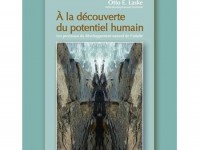This article, originally published in 1999 but still very timely today, introduces a way of deepening cognitive-behavioral, psycho-dynamic, and other behavioral approaches to coaching and HR resources management. It proposes an epistemological model that focuses on adults' frame of reference (world view), the true determinant of human behavior, which has been practiced and taught internationally at the Interdevelopmental Institute (IDM) since 2000. The approach focuses on adults speech behavior as a dimension revealing their developmental profile both social-emotionally (with regard to meaning making) and cognitively (with regard to sense making or *thinking*). The paradigm and the model are developmental in a twofold sense, that of “ontic” development occurring in human organisms as the mature over their lifetime (“nature”), and of “agentic” development brought about by humans (“nurture”). An introduction to the model is presented, followed by the topology of the mental space of coaching, a summary, and suggested topics for future research. Source: Consulting Psychology Journal 51.3, pp. 139-159 CPJ #1, 1999 Read More...
Category: Socio-emotional Dimension
Human Systems in the Anthropocene
This article is a reflection on the lack of systemic and holistic "dialectical" thinking in a world in which more than ever human actions have strong and immediate repercussions in the natural, and thus also the social, environment. It is suggested that present notions of teaching, coaching, and consulting are hopelessly anachronistic since they are built on theories and algorithms of a purely formal logical nature that hinder individuals' potential for dialectical thinking to emerge. Human Systems in the Anthropocene Read More...
Mentoring a Behavioral Coach to Think Developmentally
In this dialog between two coaches, one of them behavioral, the other developmental, I convey the mindset it takes to think about coaching clients in an adult-developmental manner. My goal is to demonstrate the differences in thinking and listening, not just "methodology", that separate the two approaches to coaching. From my experience, while behavioral coaching has its place at lower levels of organizational levels of responsibility, it is increasingly ineffective the higher one climbs up the organizational ladder. This does not preclude, however, that the two forms of coaching could not be fruitfully combined once the coach is expert in handling developmental tools. Keywords: Constructive Developmental Framework, dialectical thinking, handling complexity, developmental listening, social-emotional coaching, cognitive coaching. 2007_Laske_Otto_Mentoring_a_Beh._Coach(1) Read More...
What is CDF: An Introduction for Beginners
This article introduces to the Constructive Developmental Framework (CDF), addressing those readers who want to learn to use the methodology. CDF is seen as a comprehensive framework for consulting and coaching, much like NLP, but on a higher level of consciousness. Its main intellectual strength lies in establishing a methodology for the deconstruction, through dialog, of less developed thinking and meaning making, for the sake of client benefit. Viewed more broadly, CDF is a framework for “coaching for society” that can lift individuals’ and teams’ developmental level. What is CDF -- An Introduction for Beginners Read More...
Dialectical Thinking as a Culture Transformation Instrument for Organizations.
In this new book (to appear in 2016), addressed to CEO's, board members, and members of executive teams, Otto Laske takes an in-depth look at his Constructive Developmental Framework as a culture transformation instrument. The book focuses on organizational discourse culture as the lever by which fundamental changes come about when engaging with new forms of one-on-one and peer-listening once these are grounded in systemic dialectical thinking and an ability to "read" social-emotional meaning making in company discourse. In the tradition of consulting work based on CDF, culture transformation effects transpire in all areas of crucial important for company flourishing and breakthroughs: level of innovation, strategy design, talent management, peer-to-peer interactions in groups and teams, and the definition of new business models. The book delivers insight into the human operating system supporting holocracy. While "active listening" has been much emphasized in coaching, hosting, and DoJo4Life work, structured listening in terms of CDF is not only active but DEEP. It is deep because it is focused on joining two aspects implicit in every communication: the level of speakers' social-emotional meaning making, and the level of making cognitive sense of the world and handling its complexity. As shown in the book, both... Read More...
How Do You Teach Your Client to Think Developmentally?
The article is based on a dialog between a mentor and a behavioral coach who desires to learn to think developmentally. After an introduction on coaching focused on clients’ Frame of Reference, the four individual dialogs deal with the three aspects of human capability, the nature of developmental scores, the nature of behavioral “need-press” scores, and the synthesis of CDF data for use in coaching practice. Laske 2007 Mentoring a Behavioral Coach to Think Developmentally Read More...
